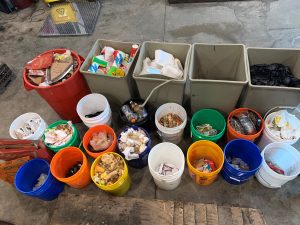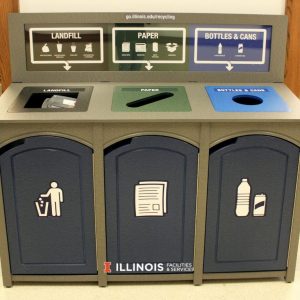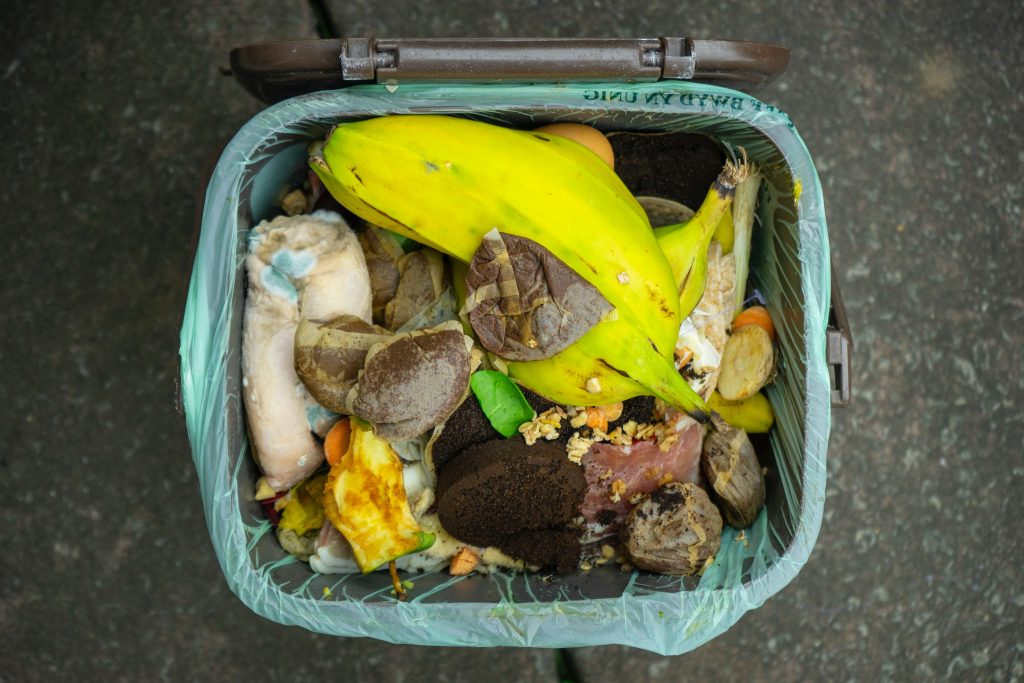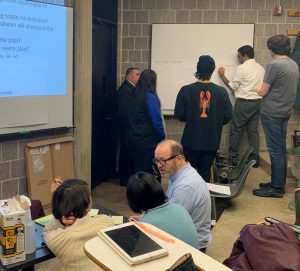
“Zero waste” is an approach to the way materials are handled through their entire life cycle. In our vision of zero waste, materials are designed to cycle infinitely through phases of useful life, improving environmental and human health wherever possible. In striving toward this vision, materials not designed for zero waste should be put to their highest and best use.
The Illinois Sustainable Technology Center (ISTC) Technical Assistance Program (TAP) provides a variety of cost-effective, sustainable material management services to assist clients with striving toward this vision of zero waste.
ISTC helps organizations achieve zero waste at every step by being a resource for innovative disposal and reuse of materials. ISTC provides information and technical assistance that help organizations improve their environmental footprint. We conduct waste audits and assist with materials management planning, supply chain optimization, and stakeholder engagement.
Our zero-waste services include:
Enhanced Waste Audits
 We design and implement site-specific waste audits ranging in scope from individual buildings to large communities. By analyzing both material inputs and outputs within a facility, we identify data-driven opportunities to help your organization achieve zero waste.
We design and implement site-specific waste audits ranging in scope from individual buildings to large communities. By analyzing both material inputs and outputs within a facility, we identify data-driven opportunities to help your organization achieve zero waste.
Waste Management Planning

We help clients to identify gaps in and opportunities to improve existing waste management processes by examining infrastructure, service providers, costs, collection practices, and user engagement. Additionally, we can offer solutions for site-specific constraints that prevent greater waste diversion.
Composting/Anaerobic Digestion
 TAP conducts business outreach and research to support food waste reduction and diversion efforts. We assist clients with setting up successful composting programs by conducting waste stream assessments, designing signage, and training employees. We can also guide you in consideration of various food scrap technology options, such as aerobic and anaerobic digestion, and in-vessel composting.
TAP conducts business outreach and research to support food waste reduction and diversion efforts. We assist clients with setting up successful composting programs by conducting waste stream assessments, designing signage, and training employees. We can also guide you in consideration of various food scrap technology options, such as aerobic and anaerobic digestion, and in-vessel composting.
Stakeholder Engagement
 TAP partners with employees, students, and communities to improve existing waste reduction programs through education and training. We provide advice on communication strategies that lead to lasting behavior change.
TAP partners with employees, students, and communities to improve existing waste reduction programs through education and training. We provide advice on communication strategies that lead to lasting behavior change.

